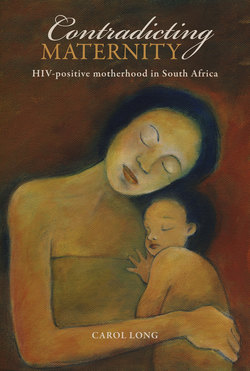Читать книгу Contradicting Maternity - Carol Long - Страница 6
На сайте Литреса книга снята с продажи.
Preface
ОглавлениеOne cold white day in Cambridge, England, Carol Long, an always shivering and very blonde young woman, told me she wanted to research the experience of being simultaneously given a death and life sentence. She proposed to interview women diagnosed pregnant and HIV positive at the very same moment; the test for pregnancy revealing the disease. Instantly my stomach contracted in identification with the unknown mother, but almost immediately, as Carol talked on and I questioned, I realised how very little I understood. My gratitude for the journey Carol took us on will always be immense.
The modest presentation of a central part of this journey here in book form is extremely welcome; the book captures the work’s importance. The importance is, of course, practical – aspects of policy, of psychological and political understanding can be re-thought: for instance, I was struck by the importance of community. The mothers talked to Carol and to each other in their hospital groups and medical check-ups – a stigmatised disease lived in social isolation and the privacy of the home changes somewhat by being shared, its pariah status slightly eroded. But beyond the implications for how to change attitudes and therefore the conditions of both HIV and motherhood, what I want to convey is a larger, more general sense of why this book truly matters.
It matters of course enormously to all the women for whom the mothers of this book speak. We, the readers, are almost certainly not these women; but, for all our sakes, we need to listen. If we do not, our ‘cultural anaesthesia’ will prevail: our knowledge of what Carol Long has heard as she asked and listened to the world’s catastrophes and its people’s trauma, will be without meaning. A meaningless knowledge diminishes us all. Instead of this Contradicting Maternity breaks through this anaesthesia, eroding the binaries of pain and pleasure, fear and joy, even death and life, us and them. It collapses our categories: the objects of research have become the subjects who address us with their big loves and small hates, with their lives and their impending deaths, their children’s heritage.
Professor J C W Mitchell
Cambridge University, UK
